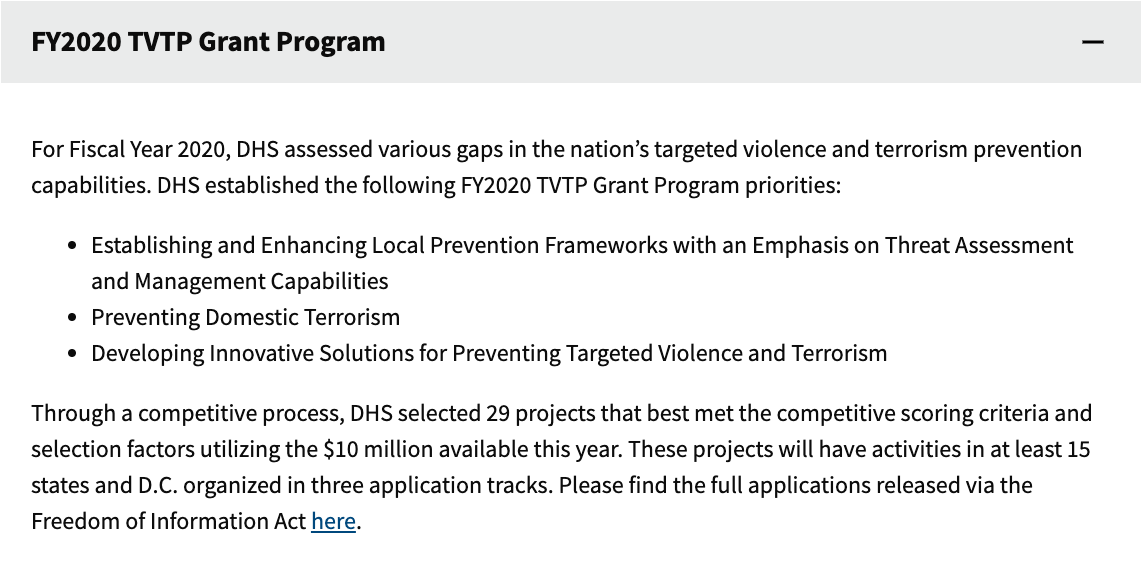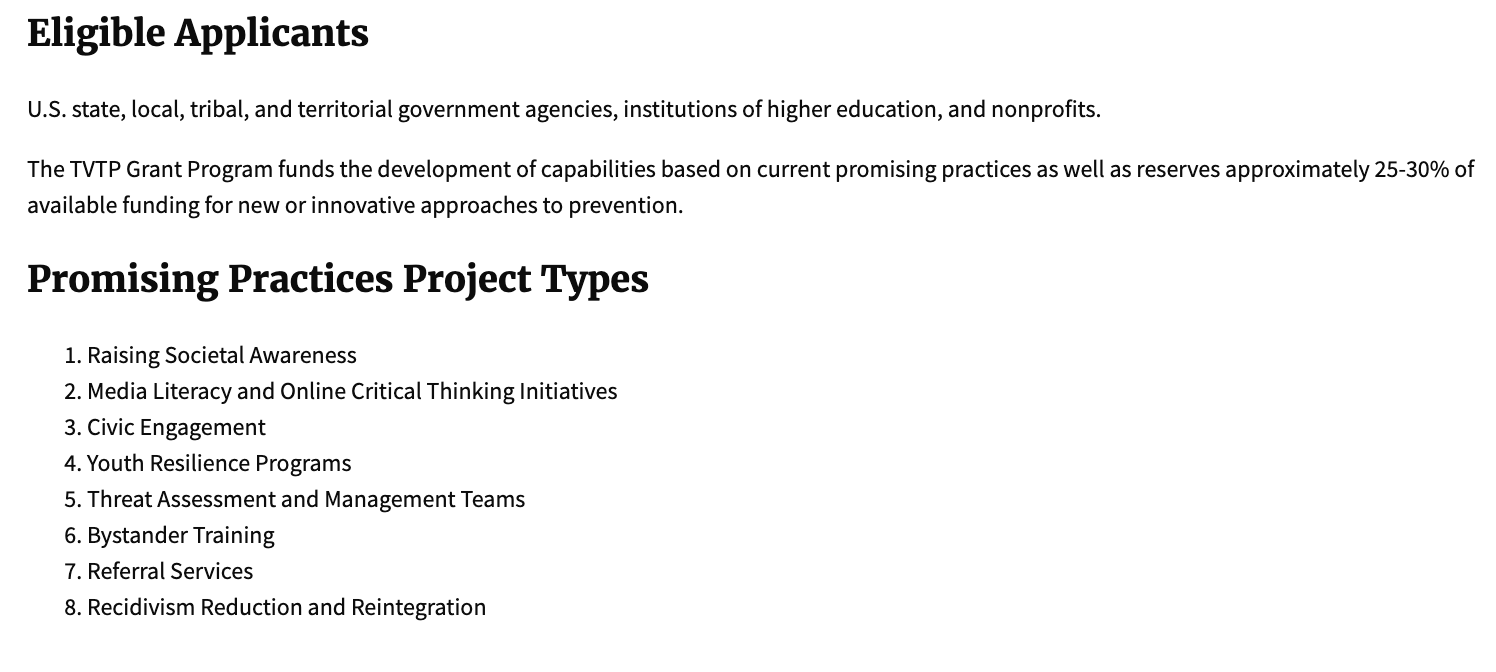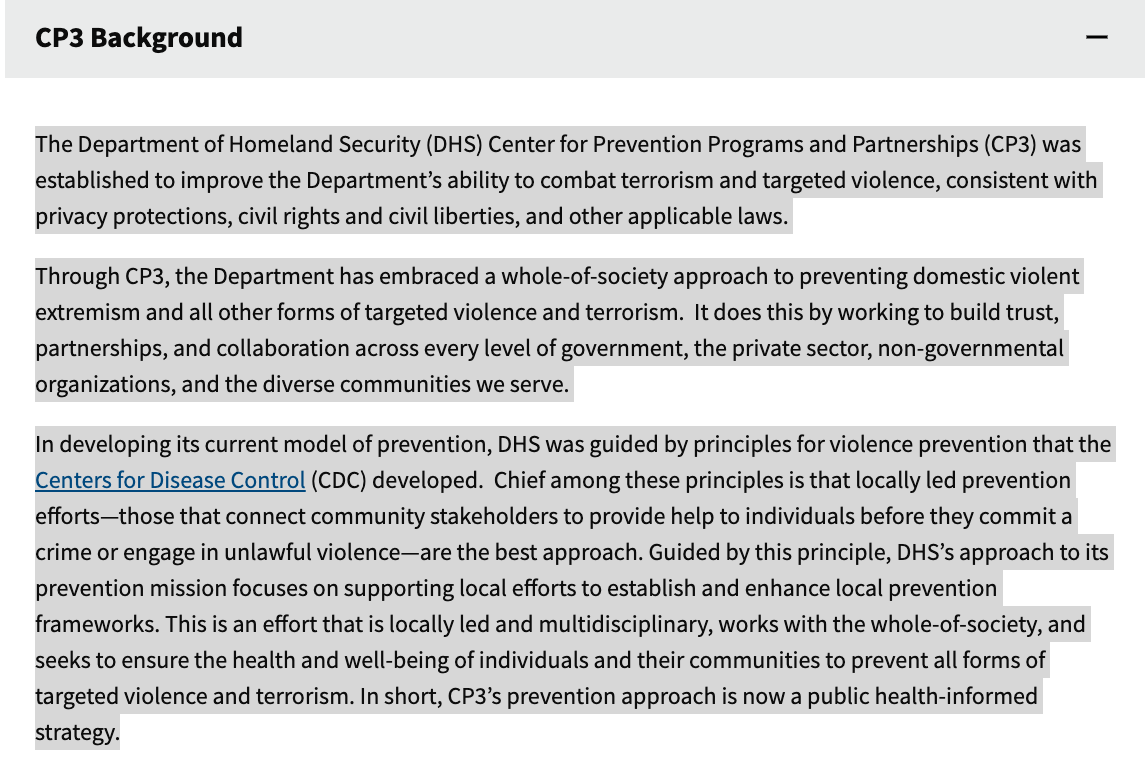The latest National Terrorism Advisory System Bulletin from President Biden's Department of Homeland Security (DHS) on June 7, 2022, continues to prioritize domestic terrorism, or Homegrown Violent Extremists (HVEs), as the greatest threat to the homeland according to the Biden administration. Domestic terrorism has been a prominent and consistent priority of the Biden administration.
Prior to the Jan. 27, 2021, Advisory Bulletin, the advisories published as far back as 2015 on the DHS website focused predominantly on foreign threats to America. Notably, the Jan. 27 advisory was the first to mention COVID-19 restrictions as a motivation for terrorists. The Jan. 27 bulletin also cited Jan. 6, false narratives (disinformation), opposition to immigration, and racial and ethnic tensions as motivating factors for terrorist events. June's bulletin was the seventh issued by Biden's DHS.
President Biden Addresses Domestic Terrorism Early On: DOJ Joins
President Biden laid the foundation for countering domestic terrorism on his first full day in office. He ordered a "100-day comprehensive review of U.S. Government efforts to address domestic terrorism, which has evolved into the most urgent terrorism threat the United States faces today." The review resulted in the "first-ever" National Strategy for Countering Domestic Terrorism policy and strategy report released in June 2021. Attorney General Merrick Garland delivered remarks on the administration's plans on Jun. 15, 2021. The first paragraph sets the stage with its focus on "xenophobia" and "safeguarding American civil rights and civil liberties." The focus on civil rights and liberties seems to be a political witchhunt and rings a bit hollow given how the Jan. 6 prisoners have and are being treated:
"Too often over the past several years, American communities have felt the wrenching pain of domestic terrorism. Black church members slaughtered during their bible study in Charleston. A synagogue in Pittsburgh targeted for supporting immigrants. A gunman spraying bullets at an El Paso Walmart to target Latinos. It goes against everything our country strives to stand for in the world, and it poses a direct challenge to America's national security, our democracy, and our national unity. This National Strategy for Countering Domestic Terrorism lays out a comprehensive approach to addressing the threat while safeguarding bedrock American civil rights and civil liberties – values that make us who we are as a nation."
The report states that domestic terrorism is both "persistent and evolving." Drawing on the Office of the Director of National Intelligence (ODNI) March 2021 Assessment of the Domestic Violent Extremism Threat, the report describes the greatest threats as "racially or ethnically motivated violent extremists (RMVEs) and militia violent extremists (MVEs)" as the "most lethal domestic violent extremists (DVEs)" with RMVEs most likely to conduct mass casualty attacked against civilians and MVEs typically targeting law enforcement and government personnel and facilities." The report also explicitly states that "U.S. RMVEs who promote the superiority of the white race are the DVEs with the most persistent and concerning transnational connections." (See pages 10-11 of the June DVE Threat Report).
In October of 2021, Merrick Garland issued his controversial memorandum. The memo was written in response to the six-page National School Board Association (NSBA) letter detailing its concerns for the safety of school board members across the nation. The NSBA later retracted its letter—perhaps because of the exodus of state school boards from the NSBA—and issued an apology.
The original NSBA letter stated that there have been "attacks against school board members and educators for approving policies for masks to protect the health and safety of students and school employees, many public school officials are also facing physical threats because of propaganda purporting the false inclusion of critical race theory within classroom instruction and curricula."
Garland was openly challenged to provide the basis for his memo in a letter written by members of the Senate Judiciary Committee on Oct. 27, 2021. He refused to retract his memorandum and defended his decision to mobilize the FBI and state law enforcement officials to investigate parents. An excerpt of his statement is below:
"Parents have been complaining about the education of their children and about school boards since there were such things as school boards and public education," Garland said, facing a deluge of criticism from Republicans on the House Judiciary Committee who accused him of opening a "snitch line on parents."
"This is totally protected by the First Amendment," he said. "True threats of violence are not protected by the First Amendment. Those are the things we are worried about here. Those are the only things we are worried about here. We are not investigating peaceful protests or parent involvement in school board meetings. There is no precedent for doing that, and we would never do that. We are only concerned about violence and threats of violence against school administrators, teachers, staff."
In May, it came to light that the FBI is suspected of employing counterterrorism threat tags to target parents who are protesting school board meetings allegedly.
A Brief History of Evolving Homeland Security Priorities
A look back at DHS strategy and policy prior to Biden's presidency confirms a "core priority" on foreign actors. The 2019 executive summary from the then-Secretary of Homeland Security, Kevin McAleenan, speaks to a post-9/11 struggle to secure our nation's borders. However, the summary also shows evolving concerns over a "growing threat from domestic actors inspired by violent extremist ideologies" and racially-and ethnically-motivated violent extremism, in particular, violent white supremacism, is one of the most prevalent and abhorrent of these anti-American ideologies. There is no moral ambiguity on this issue."
The 2-page DHS strategy fact sheet based on the 2019 executive summary states that it was, at the time, the "first national-level strategy to explicitly state that terrorism and targeted violence overlap, intersect and interact as problems and require a shared set of solutions."
CISA plays an integral role in the policy and strategy because of its focus on protecting critical American infrastructure sectors. There is an entire page on the agency's website devoted to "Hometown Security." There is also a "Targeted Violence and Terrorism Prevention Grant Program" within DHS prioritizing "innovative solutions to prevent terrorism and targeted violence" with a focus on local small and mid-sized communities, online activity, prevention of domestic violent extremism, and the advancement of equity of awards to serve underserved communities. Congress first provided $10 million to the DHS for the FY16 Countering Violent Extremism Grant Program (CVE) in 2016. DHS awarded those funds to 26 state and local agencies, non-profits, and universities in 2017.
Since 2016, three other grant programs involving millions of dollars have been funded in FY2020, FY2021, and FY2022. The funding grant was $20M for each FY2021 and FY2022. The page lists many of the groups that have received grants.
 DHS 2020 Grant Program Dom. Terrorism Prevention
DHS 2020 Grant Program Dom. Terrorism Prevention
Resources provided from the grants focus on specific types of projects using language that is now becoming commonplace in our federal agencies; resilience, media literacy, civic engagement, etc. DHS provides guidelines with written and video tutorials and examples of successful grant applications to help the neophyte prospective grantees secure monies for their projects.
 Grant Project Types/Homeland Security
Grant Project Types/Homeland Security
The DHS also features on its website what is called CP3 or the Center for Prevention Programs and Partnerships, whose mission is "to prevent acts of targeted violence and terrorism by working with the whole of society to establish and expand local prevention frameworks." They are also working with the Centers for Disease Control (CDC) for policies on violence prevention.
 DHS/CP3
DHS/CP3
The October 2020 Homeland Threat Assessment issued by the DHS outlines the priorities concerning protecting the Homeland. The assessment takes a broad look at the various threats to the United States with a focus on elections, domestic terrorism, natural disasters, cybersecurity threats, Transnational Criminal Organizations (TCOs), exploitation of lawful and protected speech and protests, COVID-19, trade, and economic security threats, and the threat of illegal and mass migration to the U.S.
2022: DOJ Announces Plans to Create New Domestic Terrorism Unit
On Jan. 11, 2022, the DOJ's Assistant Attorney General Matthew Olsen joined the bandwagon with his statement for the record in front of the Judiciary Committee. He justified the DOJ's plans for a new unit to counter escalating threats posed by violent extremists a week after the "one-year anniversary of the violent attack on the Capitol on Jan. 6." An excerpt from Olsen's public remarks demonstrates just how concerned this administration is about domestic violent extremists who are allegedly "motivated by racial animus" or who allegedly hold anti-government and anti-authority ideologies":
"Based on the assessment of the Intelligence Community, we face an elevated threat from domestic violent extremists—that is, individuals in the United States who seek to commit violent criminal acts in furtherance of domestic social or political goals. Domestic violent extremists are often motivated by a mix of ideologies and personal grievances. We have seen a growing threat from those who are motivated by racial animus, as well as those who ascribe to extremist anti-government and anti-authority ideologies. We also remain vigilant to the persistent threat from international terrorist groups, particularly al-Qaida and ISIS.
As the Attorney General has observed, combatting the threat of domestic terrorism has been a core mission for the Department of Justice since its founding more than 150 years ago, when the newly-formed department pursued the KKK to protect the rights of Black Americans under the Constitution."
Attorney General Merrick Garland delivered remarks regarding the Jan. 6 "attack" on Jan.5, the eve of the one-year anniversary. He graphically described the day's events, focusing on the "barrage of repeated violent attacks" based on thousands of videos and reports." He more recently delivered remarks on Jan. 21, 2022, at the U.S. Conference of Mayors, speaking about violent crimes, gun violence, and domestic terrorism.


